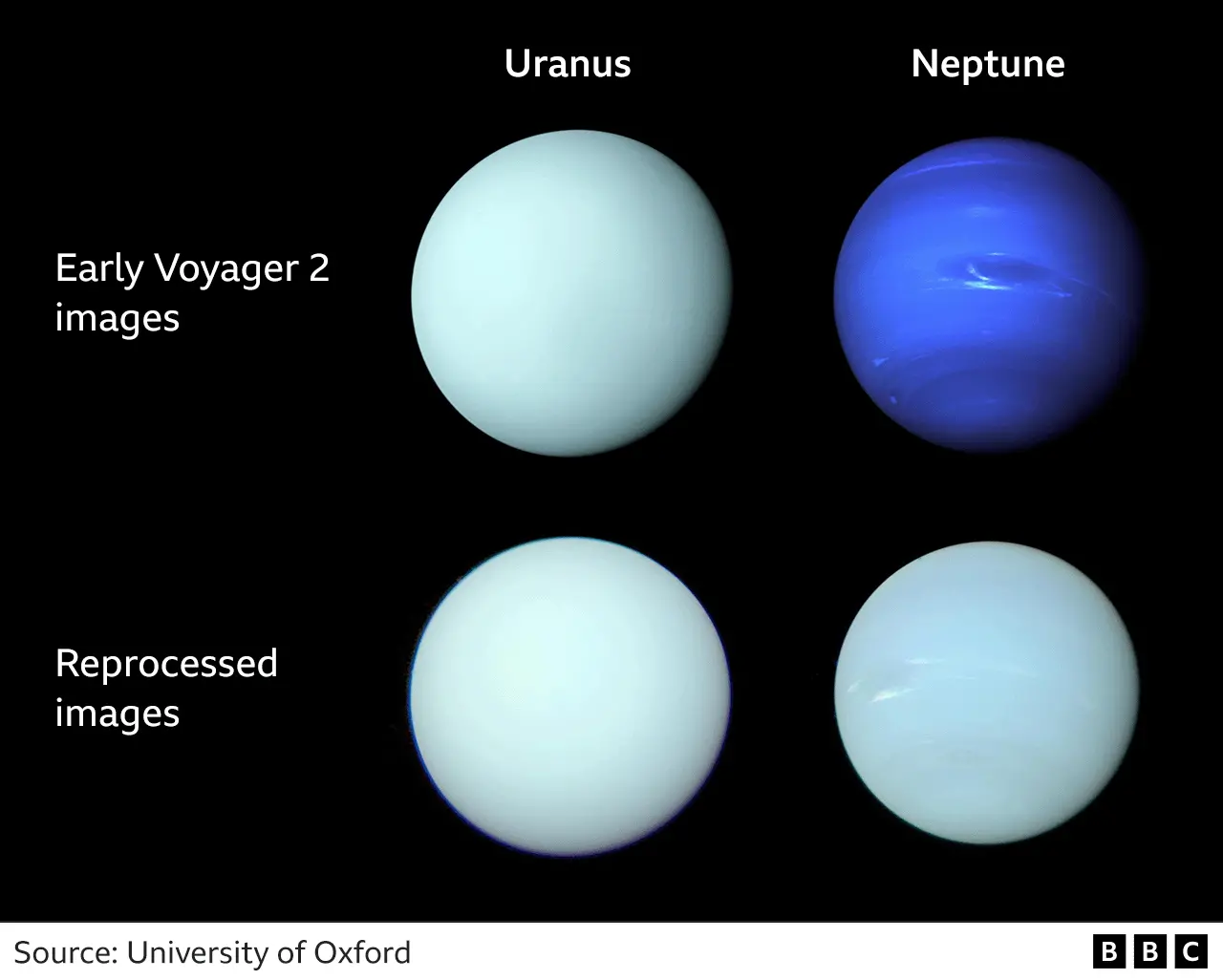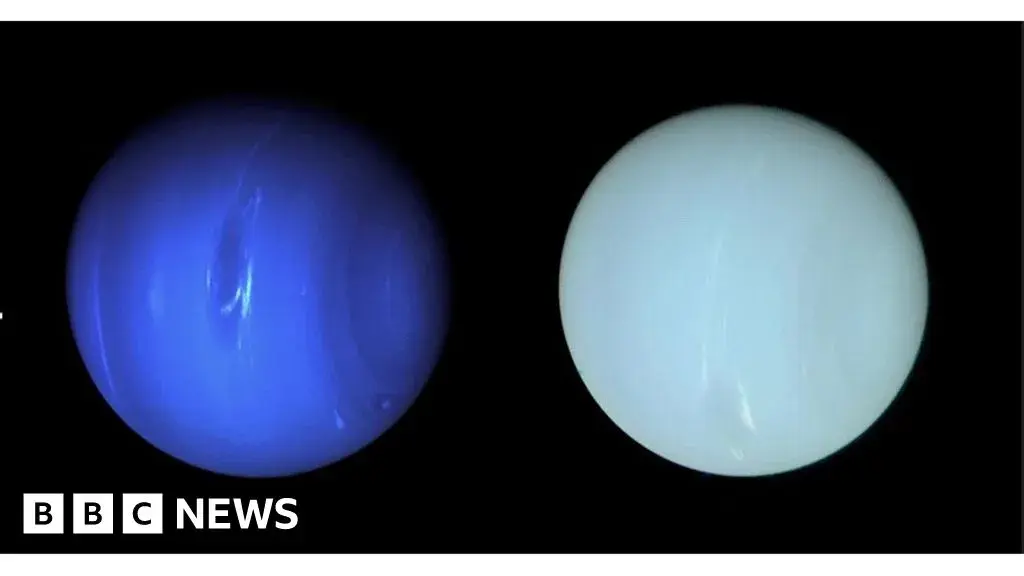
- Previous images of Neptune and Uranus, particularly from Voyager 2, were inaccurately blue and green due to image processing for detail enhancement.
- New research analyzed data from Hubble and VLT telescopes to reveal their “true” colors are both a similar shade of greenish-blue.
- Neptune still has a slightly bluer tinge due to a thinner haze layer.
- Uranus may appear slightly greener in summer/winter but bluer in spring/autumn due to its unique tilt.
- This research corrects a long-held misconception about these distant planets.
Crap, how will we be able to tell Titania vs Triton colonies in future geoguessr now?
"geo"guessr will need to come up with a new name lol
Are you telling me we’ll have to find new words for every world’s "geo"graphy and "geo"logy too? That won’t be convenient.
Honestly I think we should just not bother settling other planets. The headache of updating all our dictionaries won’t be worth it.
Space habitats ftw!
There already are, for example geography on Mars is areography and on the Moon it’s selenography. This post has a list of some of them.
However, English is whatever we say it is, and most people just use “geography” for everything and specify “Martian geography” or “Lunar geography” when the distinction needs to be made.
I propose Stellography
Am I missing something, or does Uranus look almost exactly the same in the Voyager 2 and reprocessed images? The reprocessed one just looks a tiny bit brighter.
deleted by creator
Somebody bleached Uranus
Huhuhuhuhuh
I can see your true colors shining through.
Of course if you care to look carefully, and sometimes closely.
🤖 I’m a bot that provides automatic summaries for articles:
Click here to see the summary
Our ideas of the colours of the planets Neptune and Uranus have been wrong, research led by UK astronomers reveals.
It has emerged that the earlier images of Neptune had been enhanced to show details of the planet’s atmosphere, which altered its true colour.
“They did something that I think everyone on Instagram will have done at some time in their life, they tweaked the colours,” Prof Catherine Heymans, Astronomer Royal for Scotland and a University of Edinburgh astrophysics professor, told BBC Radio 4’s Today.
Astronomers have long known that most modern images of the two planets do not accurately reflect their true colours, according to Prof Patrick Irwin from the University of Oxford, who led the research.
Prof Irwin and his team processed the original data to produce what is claimed to be ‘‘the most accurate representation yet’’ of the colour of both Neptune and Uranus.
The analysis revealed that Uranus and Neptune are a similar shade of greenish blue, although researchers found a slight difference.
Saved 69% of original text.
Can we rename Neptune to “Smaller Uranus”? I couldn’t tell the difference if they weren’t shown together.






